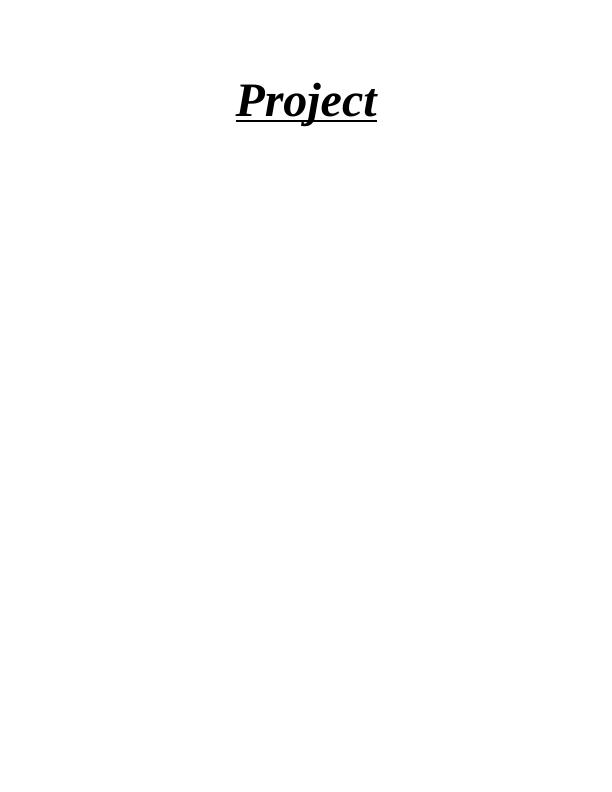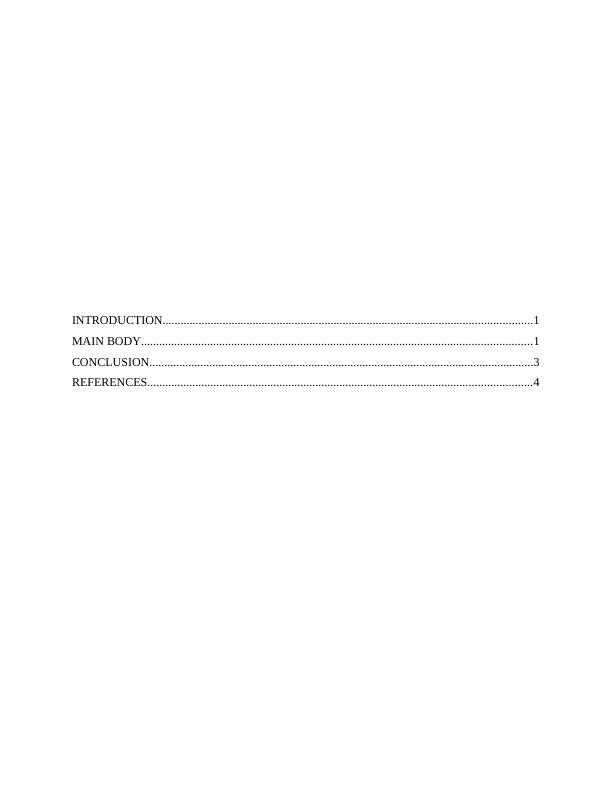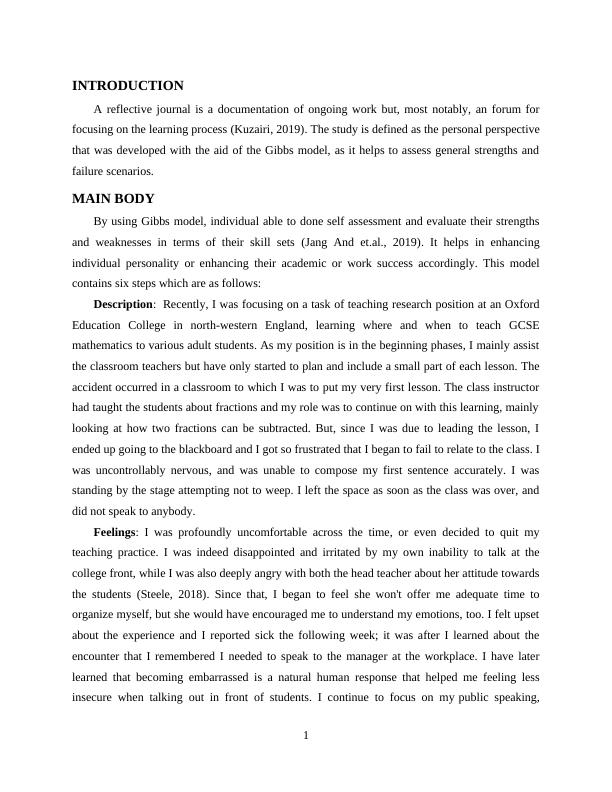Reflective Journal on Using Gibbs Model for Self-Assessment
Added on 2023-01-09
6 Pages1333 Words68 Views
End of preview
Want to access all the pages? Upload your documents or become a member.
Preparing for Success At University: Knowledge and Creativity
|6
|1384
|57
Reflective Journal
|7
|1761
|97
GCU College of Education | Assignment
|5
|2504
|32
A Comparison of Educational System of UK and China
|6
|1275
|76
Academic and Employability Skills: A Reflection Using Gibbs Reflective Cycle
|8
|2480
|428
English As First Language
|8
|1712
|116


